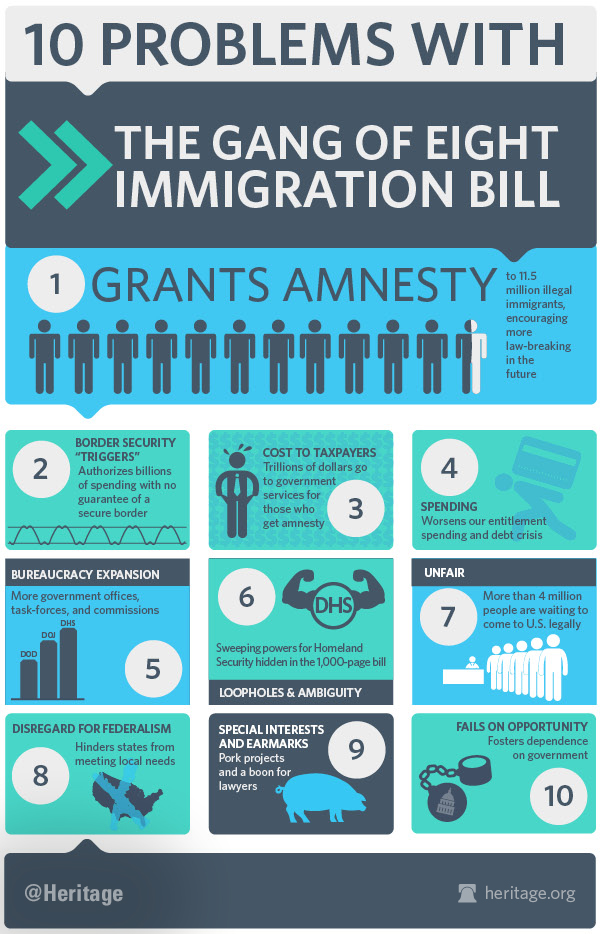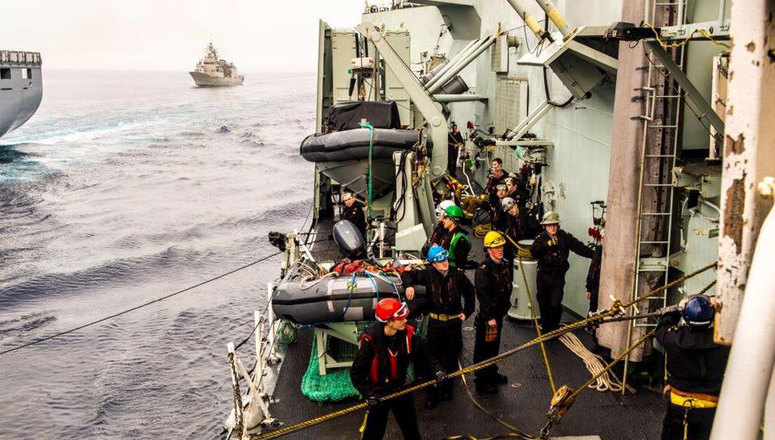Thank you Michelle, I hope those dedicated researchers that did all that grand work on Obama, too late in the game, don’t do it a second time….
Malkin: Ugh: Trump and the Phony “Job-Creating” EB-5 Green Card Racket
CR: Whelp. It appears that one of Donald Trump’s projects helped make America great… by soliciting an estimated $50 million from Chinese investors using the fraud-riddled EB-5 green card program for politically connected cronies.
This is the same racket exploited by Virginia Gov. Terry McAuliffe, lobbied for by Nevada Sen. Harry Reid and DHS official Alejandro Mayorkas, and embraced by South Dakota Republican officials. It’s a scam I’ve reported on for years.
Bloomberg News has the new story on how EB-5 funded a Trump-branded tower in New Jersey. In a nutshell:
Trump Bay Street is a 50-story luxury rental apartment building being built by Kushner Companies, whose chief executive officer, Jared Kushner, is married to Trump’s daughter Ivanka. It will have an outdoor pool, indoor golf simulator and sweeping views of Lower Manhattan; it adjoins an existing high rise condo, Trump Plaza Residence. The firm that was hired to seek investors, US Immigration Fund, is run by Florida developer Nicholas Mastroianni, who announced a partnership last year with a Trump golf course in Jupiter, Florida.
The visa program is known as EB-5. In exchange for investing at least $500,000 in a project promising to create jobs, foreigners receive a two-year visa with a good chance of obtaining permanent residency for them and their families. In 2014, the most recent year for which records are available, the U.S. issued 10,692 of these visas — 85% to people from China.
The Jersey City project has raised $50 million, about a quarter of its funding, from loans obtained through EB-5, according to a slide presentation by US Immigration Fund. Mark Giresi, general counsel of US Immigration Fund, said he believed nearly all of the EB-5 investors in the Trump project were from China.
A Trump spokesperson said the presidential candidate was not a partner in the financing deal. A Kushner flack told Bloomberg News the project was “entirely legal and creating jobs.”
But in my longtime investigations and in Sold Out, my book with John Miano, the evidence is clear: EB-5’s job creation claims are as phony and manufactured as fuzzy porkulus math, H-1B lobbyists’ math, and corporate welfare/economic development subsidies math.
Since 2001, I’ve warned about the systemic and bipartisan corruption of America’s EB-5 immigrant investor visa program. The program puts America up for sale to the most politically connected bidders.
Created under an obscure section of the expansionist Immigration Act of 1990, EB-5 promised bountiful economic development for the U.S. in exchange for granting permanent residency (and eventual American citizenship) to foreign investors. The law allows 10,000 alien entrepreneurs a year to obtain green cards by investing between $500,000 and $1 million in new commercial enterprises or troubled businesses. After two years, foreign investors, their spouses, and their children can receive “conditional permanent resident” status for two years and a gateway to permanent U.S. citizenship.
Originally, the law required individual investments in commercial enterprises to directly generate at least 10 new full-time jobs. Investors were expected to manage the businesses themselves and dedicate some of the newly-created jobs to exports. Failure would mean loss of their money and their business. In 1992, Congress created the “Immigrant Investor Pilot Program” and established government-approved EB-5 “regional centers” — specially selected business groups and corporate entities designated to administer EB-5 investments and oversee a much more relaxed definition of job creation.
The idea was to pool investor funds in a defined industry and targeted region to promote economic growth. Under this loan model, the regional center would recruit and collect funding from a group of foreign investors, then turn around and lend the money to selected projects at a low interest rate. The project would then pay off the loan over an agreed period of time. In targeted areas of high unemployment, the threshold for investment was lowered.
There are currently 614 such regional centers approved by the feds. Participation in the program has risen from 5,748 visa winners in 2008 to 22,444 in 2014. EB-5 participants in these joint ventures can fulfill job-creation requirements if they “create or preserve” either direct jobs or “indirect” jobs shown to be “created collaterally or as a result of capital invested in a commercial enterprise affiliated with a regional center by an EB-5 investor.” The five-year “pilot program,” which has been reauthorized routinely since its inception, was extended last year until September 2016.
As John and I reported, early EB-5 boosters used various theoretical multipliers to hype the program’s benefits, predicting that “4 million millionaire investors along with family members, would sign up, bringing in $4 billion in new investments and creating 40,000 jobs [annually].” In 2011, President Obama’s Council on Job Competitiveness regurgitated the same, old figures in its call to “radically expand” the program:
If the EB-5 program reaches maximum capacity, it could result annually in the creation of approximately 4,000 new businesses, $2 billion to $4 billion of foreign investment capital, and create 40,000 jobs.
But in practice, like so many of the Beltway’s immigration programs, EB-5’s ever-evolving regulations are Byzantine and arbitrary. Fraud and abuse are rampant. Unsurprisingly, the purported economic benefits of EB-5 are woefully dubious. One sensible journalist, Charles Lane, put the EB-5 promoters’ claims in proper perspective:
“Sounds impressive,” he explained, “until you realize that foreign investment in the United States totals $2.5 trillion and that the program’s fuzzy job-creation count includes jobs ‘indirectly’ attributable to the investment. EB-5 would be dubious policy even if it could claim five times that impact. Simply put, it is corporate welfare — yet another attempt to subsidize the flow of capital into politically favored channels.”
Center for Immigration Studies analyst David North adds that “foreign investment comes to the United States routinely, in large volume, with minuscule help from EB-5.” In 2010, he observed, total foreign investment in the United States increased by $1.9 trillion, according to the U.S. Department of Commerce. Based on the investors’ green card applications filed two years after the first investment, North estimated that “EB-5 investment that year was about $191 million, and that was a well above-average year for the program. So, for every $100 of increased foreign investment that year, the EB-5 program contributed about one penny [emphasis added].”
Beltway cronyism was embedded in EB-5’s DNA from the get-go. The original Democratic House sponsor and his spokesman went on to establish for-profit companies that marketed the program and provided consulting services. Former federal immigration officials from the George H.W. Bush administration formed lucrative limited partnerships to cash in on their access and EB-5 expertise.
Key supporters of the original immigrant investor visa program included Democrat Sens. Ted Kennedy, D-Mass., and Paul Simon, D-Ill. Big Government Republicans embraced it, too. Prescott Bush, George W. Bush’s uncle, was on the board of American Immigration Services, one of the leading EB-5 visa vendors. So was former President Bush’s Immigration and Naturalization Service commissioner, Gene McNeary. GOP Sen. Mitch McConnell worked closely with the woman who was instrumental in drafting the EB-5 law: Maria Hsia.
That final name should ring a bell. Hsia was a Simon and McConnell donor identified by the House Governmental Affairs Committee as “an agent of the Chinese government.” In 2000, she was found guilty by a federal jury of laundering more than $100,000 in illegal donations to the Democratic National Committee through the infamous Hsi Lai Buddhist temple in California. At the time, Funny Money Honey Hsia was working for McConnell and others on the 1990 immigration bill, she also worked for a campaign fund-raising group called the Pacific Leadership Council. Hsia co-founded the PLC with Lippo Bank officials John Huang and James Riady, the chief figures in the Clinton-Gore Donorgate scandal convicted of campaign-finance crimes. At least six Lippo Bank officials reportedly benefited from the EB-5 law. Hsia partnered with former Democratic Rep. Bruce A. Morrison of Connecticut, an immigration lawyer, author of the 1990 Immigration Act in the House, and main sponsor of EB-5. After leaving Congress to run (unsuccessfully) for governor in Connecticut, Morrison formed a business to market the investor visa program.
An entire side industry of economic book-cookers has arisen to supply analyses of the “job creation” benefits of EB-5 projects and to gerrymander Census employment data to fit the program’s definition of “targeted employment areas” in order to qualify for lower investment thresholds (as was done in New York City’s Atlantic Yards/Pacific Park EB-5 deal).
Think Solyndra and federal stimulus math on steroids.
How does Trump respond to the debunking of the bogus job-creation math upon which the entire cash-for-citizenship swindle rests? Have any other Trump projects been subsidized by EB-5 China money? Where are the other GOP candidates on the issue and will they join Capitol Hill calls to kill the program?
If the RNC-organized, corporate media-controlled GOP debates weren’t such clown shows, maybe American voters could get some answers.



